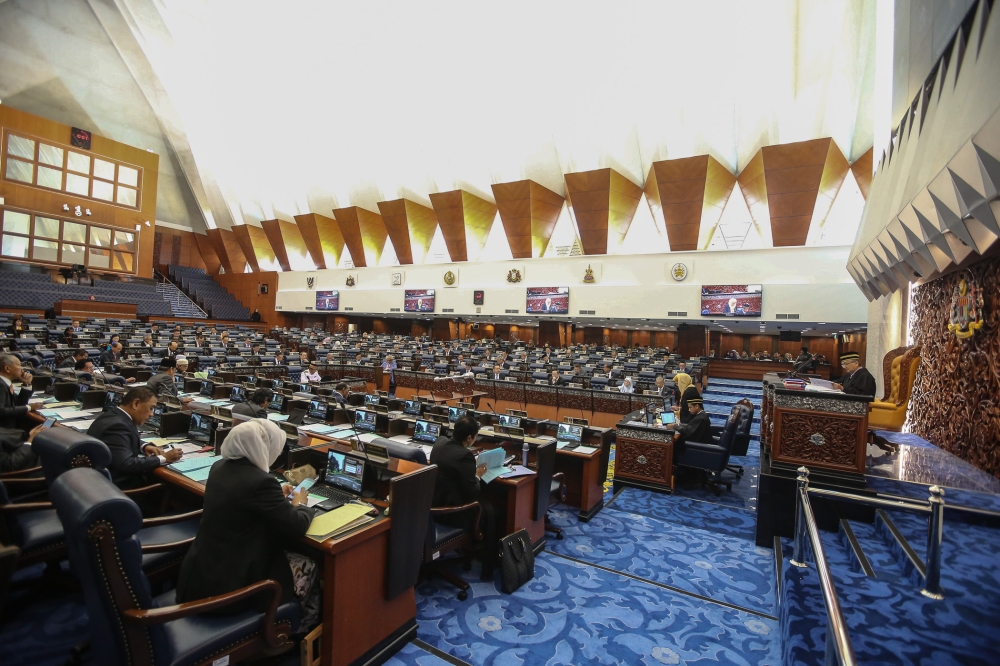AUG 17 — An imperative piece of news which may have slipped the attention of many (likely due to the ongoing Menteri Besar saga in Selangor) is about a Form 5 boy in Penang being investigated under the 1948 Sedition Act for ‘liking’ a Facebook page titled, “I Love Israel”
I will attempt to look at this issue from an objective legal standpoint. If you are interested to further find out about the freedom of speech (more so its limitations) in Malaysia, you may do so by reading my previous article
Back the issue, I’m sure many of you are wondering whether liking a Facebook page can amount to sedition. The use of social media has somewhat become a hot potato to the Government as information (be it true, or false) can be spread so easily
Just a little background, the Universal Declaration of Human Rights (in which Malaysia is a signatory) defined the freedom of expression as the right of every individual to hold opinions without interference and to seek, receive and impart information and ideas through any media and regardless of frontiers.
Article 10(1)(a) of the Federal Constitution guarantees every citizen the right to freedom of speech and exception. However, under clauses (2), and (4) of Article 10, Parliament may impose certain laws to limit the ambit of our right to say what we want and to spread our opinions (e.g. the Sedition Act 1948, Defamation Act 1957)
It was articulated that the Form 5 boy will be investigated under Section 4(1) of the Sedition Act. Section 4(1) makes it an offence if any person
(a) does or attempts to do, or makes any preparation to do, or conspires with any person to do any act which has or which would, if done have seditious tendency;
(b) utters any seditious words;
(c) prints, publishes, sells, offers for sale, distributes or reproduces any seditious publication; or
(d) imports any seditious publication
At this juncture, we would need to know what constitutes a “seditious tendency” before we can properly interpret the piece of legislation. Section 3(1) defines a “seditious tendency” as a tendency
(a) to bring into hatred or contempt or to excite disaffection against any Ruler or against any Government;
(b) to excite the subjects of any Ruler or the inhabitants of any territory governed by any Government to attempt to procure in the territory of the Ruler or governed by the Government, the alteration, otherwise than by lawful means, of any matter as by law established;
(c) to bring into hatred or contempt or to excite disaffection against the administration of justice in Malaysia or in any State;
(d) to raise discontent or disaffection amongst the subjects of the Yang di-Pertuan Agong or the Ruler of any State or amongst the inhabitants of Malaysia or of any State;
(e) to promote feelings of ill-will and hostility between different races or classes of the population of Malaysia; or
(f) to question any matter, right, status, position, privilege, sovereignty or prerogative established or protected by the provisions of Part III of the Federal Constitution or Article 152, 153 or 181 of the Federal Constitution
It is most likely that the boy will be investigated under Section 4(1)(a) [done an act which has a seditious tendency] on the basis that it has the tendency to raise discontent or disaffection amongst the inhabitants of Malaysia [Section 3(1)(d)]
Let us take bring the McDonalds boycott into the picture and draw an analogy. If (for the sake of argument), the majority of Malaysians decide to take part in the boycott, every Malaysian who “liked” McDonald’s facebook page would be investigated for sedition on the basis that their “like” has the tendency to raise discontent or disaffection amongst the inhabitants of Malaysia.
Does anyone else see how ridiculous this sounds? The facts are insufficient but what we know is that the form 5 boy merely liked the “I Love Israel” Facebook page (he claims it was accidental) and his teacher found out about it.
Just as the teacher has a right to be anti-Israel, her student has the right to be pro-Israel. It is evident that it is only a matter of opinion. Voltaire once said, “Think for yourself and let others enjoy the privilege of doing so too”
The million dollar question is whether we truly have the freedom to hold opinions, or whether we only have the freedom to hold opinions that are acceptable to those having auctoritas
It was further reported that the teacher shared it (the boy’s like of the FB page) on her Facebook page, criticised the student, and the boy’s actions attracted criticism and threats from other Facebook users. There were even calls to boycott the student, and one Facebook user commented the student should be burned
Now, wait a second. One is a mere “like” or “accidental like” (whichever you believe), while the other is an intentional share & expression of contempt/disapproval. The latter even resulted in calls to boycott the student and threats on the boy’s life. Any reasonable man can see which is worse
At least the police appear to be doing an impartial job as Seberang Prai Selatan district police chief Superintendent Shafien Mamat said the police will probe why he had liked the page as well as the threats made against him.
Margaret A. Edwards once said, “Too many adults wish to ‘protect’ teenagers when they should be stimulating them to read of life as it is lived.” That is exactly what happened in this case. Ergo, the teacher should be castigated for her unbecoming actions
* Joshua Wu first year law student blogs at rebuttedopinions.wordpress.com
** This is the personal opinion of the writer and does not necessarily represent the views of Malay Mail Online.





















